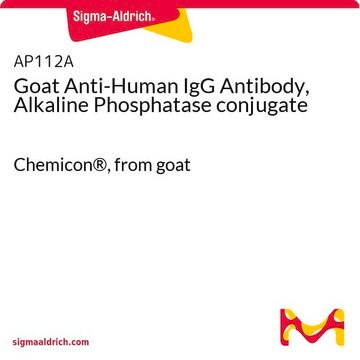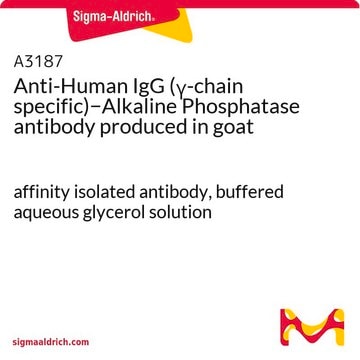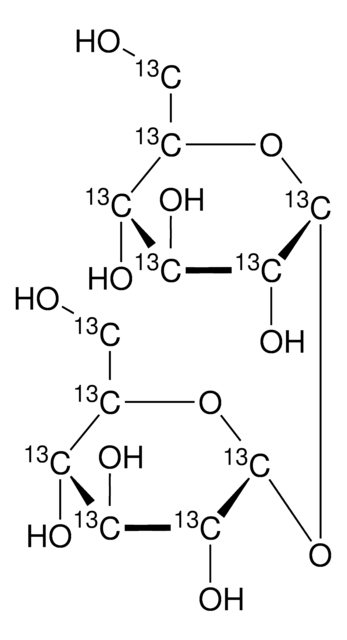A2064
Anti-Human IgG−Alkaline Phosphatase antibody, Mouse monoclonal
clone GG-5, purified from hybridoma cell culture
Sinónimos:
Monoclonal Anti-Human IgG (γ-chain specific)
About This Item
Productos recomendados
biological source
mouse
Quality Level
conjugate
alkaline phosphatase conjugate
antibody form
purified immunoglobulin
antibody product type
secondary antibodies
clone
GG-5, monoclonal
form
buffered aqueous glycerol solution
species reactivity
human
technique(s)
direct ELISA: 1:50,000
dot blot: 1:80,000
immunohistochemistry: suitable
western blot (chemiluminescent): 1:80,000
isotype
IgG1
shipped in
wet ice
storage temp.
2-8°C
target post-translational modification
unmodified
¿Está buscando productos similares? Visita Guía de comparación de productos
General description
Application
- enzyme linked immunosorbent assay (ELISA)
- western blotting
- dot blot
- immunohistology
Physical form
Disclaimer
¿No encuentra el producto adecuado?
Pruebe nuestro Herramienta de selección de productos.
Storage Class
10 - Combustible liquids
wgk_germany
WGK 2
ppe
Eyeshields, Gloves, multi-purpose combination respirator cartridge (US)
Elija entre una de las versiones más recientes:
Certificados de análisis (COA)
¿No ve la versión correcta?
Si necesita una versión concreta, puede buscar un certificado específico por el número de lote.
¿Ya tiene este producto?
Encuentre la documentación para los productos que ha comprado recientemente en la Biblioteca de documentos.
Los clientes también vieron
Nuestro equipo de científicos tiene experiencia en todas las áreas de investigación: Ciencias de la vida, Ciencia de los materiales, Síntesis química, Cromatografía, Analítica y muchas otras.
Póngase en contacto con el Servicio técnico
















